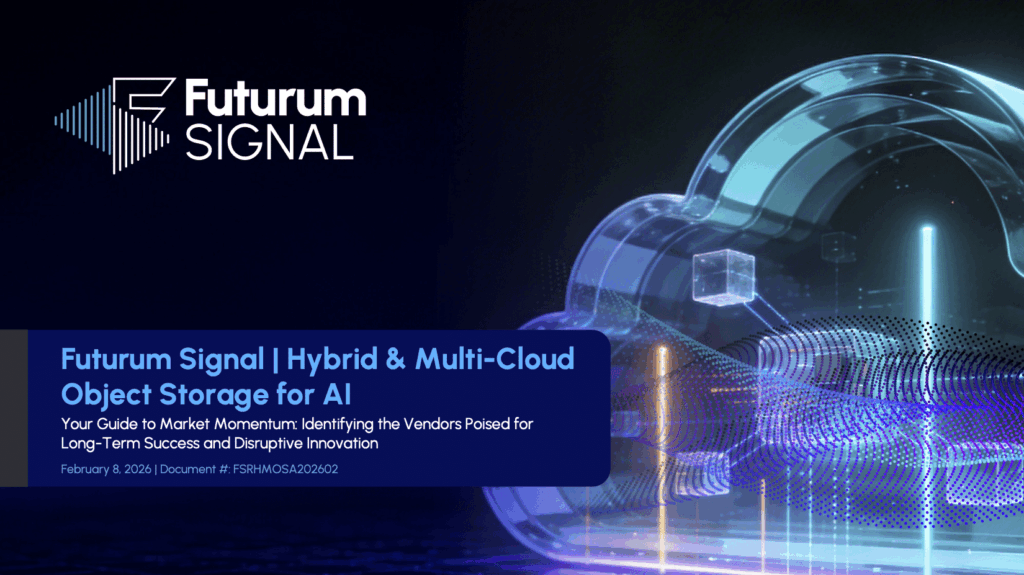Analyst(s): Steven Dickens
Publication Date: October 22, 2024
Rocket Software’s latest GenAI-powered announcements aim to streamline the modernization of mainframe core systems, focusing on COBOL integration and secure hybrid cloud transitions. These advancements aim to improve developer productivity and decision-making by leveraging AI-driven data insights while prioritizing security and regulatory compliance.
What is Covered in this Article:
- Rocket Software’s GenAI integration in hybrid cloud solutions
- Modernization of COBOL applications using AI-driven tools
- Enhancements in data integration and application explainability
- Security and regulatory compliance in hybrid cloud strategies
- The speed of innovation of the AMC portfolio post-acquisition from OpenText
The News: Rocket Software has expanded its core offerings to include GenAI functionality, enhancing application modernization, data integration, and decision-making. These advancements focus on improving agility, security, and delivering regulatory compliance while streamlining COBOL modernization and improving the transition to hybrid cloud environments.
Is GenAI the Key to Modernizing Legacy Systems or Just More Hype?
Analyst Take: Rocket Software has gone from being a company that largely operated out of the limelight to a company that has secured a leadership position in the mainframe space. A large part of this transition has been the acquisition of the AMC assets from OpenText. When you couple this transition to Rocket Software’s recent advancements in generative AI (GenAI) integration within its hybrid cloud solutions, it marks a pivotal step in addressing the evolving demands of enterprise IT modernization. These recent developments are designed to streamline the modernization of core business applications and data, significantly enhancing organizational agility, decision-making, and the integration of legacy systems into cloud infrastructures.
Rocket’s expanded hybrid cloud suite includes products such as Rocket Content Smart Chat, Rocket Enterprise Suite, and Rocket Visual COBOL, all of which focus on improving application explainability, data integration, and developer productivity. The company’s approach underlines a deep commitment to enabling enterprises to extract greater value from core transactional systems while ensuring seamless integration with modern cloud environments.
Addressing the Increasing Pressures on IT Modernization
In today’s business environment, IT decision-makers are under extreme pressure to deliver more with less. This results in an increasing need to streamline operations, reduce costs, and improve decision-making processes. Rocket’s enhanced hybrid cloud capabilities aim to address these pressures by leveraging GenAI and automation. For example, Rocket Content Smart Chat is designed to allow organizations to access unstructured data through secure, AI-powered conversational interfaces. This capability not only simplifies data queries but also ensures regulatory compliance by maintaining strict governance over sensitive information.
Moreover, the updating of Rocket Enterprise Suite provides an AI-driven natural language assistant that assists developers in analyzing complex code. This tool makes it easier for enterprises migrating from mainframes to cloud-native environments, where legacy code often becomes a bottleneck. By simplifying code analysis and the migration process, the suite enables faster, more efficient transitions to hybrid cloud strategies, improving overall productivity.
The Role of GenAI in Modernizing COBOL Applications
One of the core features of Rocket Software’s new capabilities is its focus on COBOL, a language still in use in many mission-critical applications, particularly in the financial and government sectors. Rocket Visual COBOL employs a natural language assistant to help developers better understand and modernize COBOL code. This is a key advancement for organizations that rely heavily on COBOL but are looking to modernize their IT infrastructure by transitioning to hybrid cloud environments.
The use of GenAI in this context allows for the preservation of core business logic while ensuring that legacy applications can be integrated seamlessly with modern technologies. For enterprises, this reduces the learning curve for developers and accelerates the time to value, providing immediate benefits in terms of operational efficiency and scalability.
I will be looking for PL/1, REXX, and JCL support going forward as I am seeing this from vendors such as BMC in their new AI capabilities. However, COBOL is where the vast majority of the issues reside for many enterprises.
Enhancing Agility and Security
As hybrid cloud strategies become the norm, the importance of agility and security cannot be overstated. Rocket Software’s hybrid cloud solutions are designed to deliver both. The new GenAI enhancements accelerate application understanding, enabling organizations to quickly adapt to changing business needs without compromising security.
Security remains a core focus for Rocket, particularly with products such as Rocket Content Smart Chat, which ensures that sensitive data remains within governed environments. This is particularly important in industries such as finance, healthcare, and government, where regulatory compliance is critical. Rocket’s commitment to security and compliance ensures that these industries can embrace modernization without exposing themselves to unnecessary risks.
Rapid Response to Market Needs
The speed at which Rocket Software has introduced these new functionalities is notable. Particularly noteworthy is that the company has released significant new functionalities within six months of acquiring the AMC tools from OpenText. This rapid pace of innovation sets Rocket apart in an industry where post-acquisition pauses to digest the acquired company are common. It demonstrates Rocket’s agility and its deep understanding of market demands, particularly the need for timely solutions that address both legacy and modern IT infrastructures.
A Broader Suite of Capabilities
The latest advancements complement Rocket’s existing hybrid cloud solutions, which include Rocket Data Intelligence, Rocket Data Replicate and Sync, Rocket Mobius, Rocket Cloud Connector, and Rocket Data Virtualization. As a solution set, these products look to deliver end-to-end modernization support, enabling real-time data management and seamless integration across on-premises, hybrid, and cloud-native environments.
This comprehensive suite of tools positions Rocket Software as a leading player in the modernization space, empowering enterprises to not only modernize their IT infrastructure but also future-proof their operations. By integrating GenAI and automation, Rocket is helping organizations improve their operational resilience, reduce labor-intensive processes, and make more informed decisions based on real-time data insights.
Conclusion
Rocket Software’s expansion of its hybrid cloud solutions through GenAI integration is a significant development for enterprises looking to modernize their core transactional systems. Furthermore, Rocket is looking to meet its customers where they are on their journey by providing options to modernize on the platform or migrate to the cloud.
The focus on improving code analysis, data integration, and application understanding will provide immediate value to organizations across industries regardless of the underlying platform. Furthermore, the emphasis on security and regulatory compliance ensures that these solutions can be adopted safely and efficiently. Rocket’s continued innovation, particularly in its rapid response to market needs and speed of execution post-acquisition, positions it as a critical player in the modernization journey for enterprises navigating the complexities of hybrid cloud strategies.
What to Watch:
- Competitors such as Broadcom, IBM, and BMC are already in the market with enhanced AI-driven modernization tools, intensifying the focus on COBOL and mainframe environments.
- Advances in cloud-native technologies could push enterprises to adopt more automated migration solutions, potentially accelerating Rocket Software’s GenAI adoption.
- Enterprises may prioritize security and compliance, which could limit the pace of GenAI adoption if Rocket does not continuously address evolving regulatory demands.
- Market moves by hyperscalers such as AWS and Microsoft Azure, offering native AI solutions, might challenge Rocket Software’s positioning within hybrid cloud strategies.
- Emerging vendors such as Astadia, Mechanical Orchard, Heirloom Computing, and AveriSource are also focused on this market and some are well funded or recently acquired by larger software companies.
See the complete press release on the AI-driven announcements on the Rocket website.
Disclosure: The Futurum Group is a research and advisory firm that engages or has engaged in research, analysis, and advisory services with many technology companies, including those mentioned in this article. The author does not hold any equity positions with any company mentioned in this article.
Analysis and opinions expressed herein are specific to the analyst individually and data and other information that might have been provided for validation, not those of The Futurum Group as a whole.
Other Insights from The Futurum Group:
Mainframe Modernization Begins with Application Modernization
Rocket Software’s $2.275B Acquisition Boosts Modernization Suite, Unleashes Cloud Innovation
Author Information
Steven engages with the world’s largest technology brands to explore new operating models and how they drive innovation and competitive edge.







